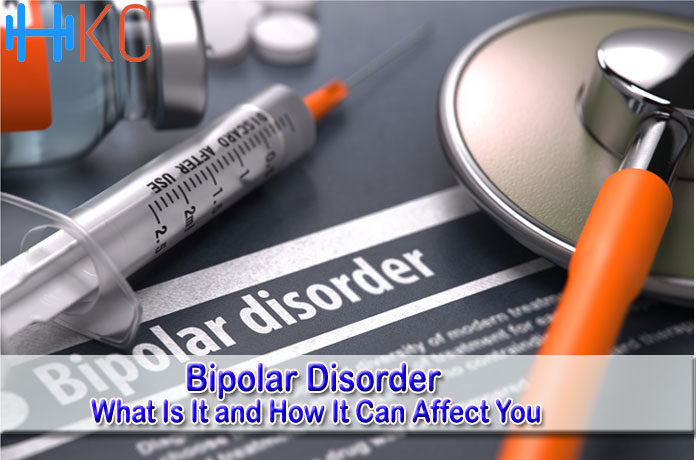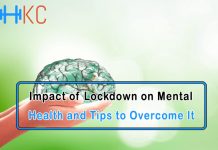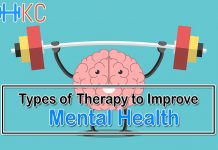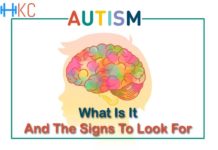When you hear about the term bipolar disorder, you may think it’s “just” people “randomly” feeling happy and sad. The misconceptions can sometimes get to a point where people can nonchalantly say “I’m bipolar” because their moods change. Unfortunately, bipolar disorder affects people much greater than it seems for others. Moreover, bipolar disorder has a vast number of implications to people it affects because its nature is more than “just” being something that changes moods.
Bipolar Disorder: What Is It?
Bipolar disorder is more commonly known as manic-depressive illness. It’s a kind of mental condition that can cause unusual shifts in a person’s mood and energy, which in turn can affect their ability to do day-to-day tasks and activity levels. There are currently four (4) types of basic bipolar disorders, with all of them involving clear alterations in terms of activity levels, energy, and mood.
All types of bipolar disorders are characterized by periods of “up” or energized behavior and “down” or sad behaviors, also known as manic and depressive episodes, respectively.
- Bipolar I disorder is characterized by severe manic symptoms that require hospital care, or manic episodes that last a week. Depressive episodes may also occur, which then lasts at least 14 days.
- Bipolar II disorder is similar to Bipolar I disorder, but not full-blown episodes.
- Cyclothymic Disorder or Cyclothymia is characterized by experiencing different periods of both hypomanic (not too manic) or depressive episodes that last for at least 24 months.
- Other and related specified and unspecified bipolar disorders that don’t fit the description on the above all under this category.
Bipolar Disorder: How It Affects You
It’s important to understand at this point that having bipolar disorder is not an easy thing to experience, and one can’t just self-diagnose with bipolar disorder. Institutions such as Open Sky Psychology have trained psychologists capable of helping you get attuned with your inner self in order to more carefully assess your situation and eventually identify if you do have bipolar disorder or not – and if so, what’s your best course of action to help manage it. Here’s how bipolar disorder can affect you:
- Manic episodes may give too much energy: When you have bipolar disorder, chances are you’re going to have manic episodes. These don’t automatically equate to being “hyper,” but they’re associated with feelings of elation, “high,” “up,” or generally having a lot of energy. Likewise, this can make you seem “wired” or “jumpy” and being more active than usual. You tend to feel as though thoughts are coming in fast, and you’re much more active than usual. You may even feel you can do a lot of things at once because of your high activity levels. Sometimes, though, you may be a bit touchy, irritable, or irritated easily – and unfortunately, these activity levels may motivate you to do risky things such as having reckless sexual encounters or spending episodes.
- Depressive episodes may get you too sad: When you have bipolar disorder, you’re likely going to have depressive episodes. This doesn’t necessarily mean being depressed immediately, but these are characterized by feeling hopeless, empty, down or sad. Likewise, this causes you to have either decreased activity levels and little energy. Like people who feel very sad, you can sometimes feel empty, forgetful, worried, and tired. You may have trouble concentrating, or sleeping properly. At the worst, you may think about suicide or death.
- Activities at home, school, work, and even play: When you have bipolar disorder, not only do you have manic and depressive episodes, but these episodes can happen whenever they want and wherever they want – and almost all the time out of your control. This means you can have these episodes at home, at school, at work, or even when you’re supposed to relax. When bipolar disorder affects your mood, it also affects your energy levels. Sometimes you get that dash of energy you need to do your tasks, and sometimes you get too low energy to even bother doing anything. Likewise, you may get the kind of adrenaline to do risky things you shouldn’t do, or even get too low energy to do things you should do for a particular task. Knowing these may be affected by your bipolar disorder can greatly help you manage your lifestyle.
- Relationships with people you care for, and around you: When you have bipolar disorder, it’s not just yourself that gets affected, but also the people around you. This doesn’t necessarily affect them in a bad way immediately, but it’s important to understand that because you deal with many people all the time, your relationships with them will take a toll because of your condition. If you remain unaware of your bipolar disorder, or if you don’t have it managed properly, you may unexpectedly say things or do things to others you don’t mean but can affect your relationship for the worse. People around you aware of your bipolar disorder will also need to adjust to your situation, as you often need to find yourself a good support network that can help you through your condition’s “growing pains” as you grow accustomed to both your manic and depressive episodes.
The Takeaway: Bipolar Disorder Is Not What It Seems
With the information above, hopefully the mysteries surrounding bipolar disorder may be solved and its nature. Hopefully, with even a rudimentary understanding of bipolar disorder above, you’ll get a better view of how this mental condition can affect other people and how you can manage the situation should you be affected as well. If you feel as though you may have symptoms of bipolar disorder, or if you already have bipolar disorder but have a much harder time managing it, talk with a psychologist or a psychiatrist in order to receive proper care.














